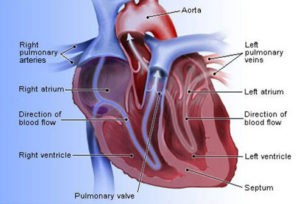
Diagnosed with Cancer? Your two greatest challenges are understanding cancer and understanding possible side effects from chemo and radiation. Knowledge is Power!
Learn about conventional, complementary, and integrative therapies.
Dealing with treatment side effects? Learn about evidence-based therapies to alleviate your symptoms.
Click the orange button to the right to learn more.
- You are here:
- Home »
- Blog »
- side effects ID and prevention »
- Traditional Chinese Medicine for My Heart Failure
Traditional Chinese Medicine for My Heart Failure
Beneficial effects of Shengmai in treating heart failure (HF) were also observed in other outcomes, including exercise test, ejection fraction and cardiac output.
I was diagnosed with chemotherapy-induced cardiomyopathy in December of 2010. For the sake of writing blogs, I refer to my problem as heart failure.
My goal is to use as little conventional cardiological therapy (ies) as possible. Because of my negative experiences with conventional oncology, I have lost all trust in conventional medicine. Even cardiology.
Since my original diagnosis, my ejection fraction has improved from 40 to 50, and my aortic root has remained the same. My symptoms have remained the same (breathlessness, fatigue, etc.) and my aortic aneurism is stable.
There is a small China Town in downtown Cleveland, Ohio. I went to a chinese doctor there years ago when I was dealing with my cancer, multiple myeloma.
The doctor there could barely speak english but I always thought that the herbs she gave me helped. After all, I’m still here all there years later.
The article linked below combined with my slowly dilating aortic aneurysm makes me want to go see my chinese doctor again. I’ll let you know how it goes.
Do you have heart failure? Do you have any experience with traditional chinese herbal medicine? Scroll down the page, post a question or comment and I will reply to you ASAP.
Thank you,
David Emerson
- Cancer Survivor
- Cancer Coach
- Director PeopleBeatingCancer
Recommended Reading:
- Taurine for Chemo-Induced Congestive Heart Failure (CHF)
- A-fib therapies- Catheter Ablation, Drug Therapy or… Nothing?
- Long-Term Myeloma Survivor Desperate for Cardio-Oncology
- Got Heart Failure? Get Brain Training, Exercise, Supplements, Diet
Shengmai (a traditional Chinese herbal medicine) for heart failure
“Objectives- To determine the effect (both benefits and harms) of Shengmai in treatment of people with heart failure…
Selection criteria-We included randomised controlled trials (RCTs) of Shengmai plus usual treatment for heart failure versus usual treatment alone, or Shengmai versus placebo, irrespective of blinding status. In this update we only included studies with a clear description of randomisation methods and classified as true RCTs…
Main results-We included a total of 14 RCTs (858 patients) in this review update, four of which were new trials. Of these 14 RCTs, 11 trials compared Shengmai plus usual treatment with usual treatment alone, and three trials compared Shengmai with placebo. Improvement of NYHA functional classification was more common in patients taking Shengmai plus usual treatment than in those receiving usual treatment alone-10 trials, 672 participants; low quality evidence).
Beneficial effects of Shengmai in treating heart failure were also observed in other outcomes, including exercise test, ejection fraction and cardiac output.
The three RCTs (106 patients) comparing Shengmai with placebo reported improvement in NYHA functional classification and in stroke volume.
Three of the 14 RCTs reported a total of six patients with mild adverse effects and two were withdrawn due to the adverse effects. The adverse events rate was 1.21%.
Authors’ conclusions- Shengmai may exert a positive effect on heart failure, especially for improving NYHA functional classification when Shengmai plus usual treatment is used. The review results should be interpreted with caution due to the high risk of bias of the included studies (particularly regarding allocation concealment and blinding), the small sample size of these studies, and the significant heterogeneity in outcomes such as ejection function, cardiac output and stroke volume. There was no evidence available concerning the effect of Shengmai on mortality, and more high quality studies with long‐term follow‐up are warranted.


